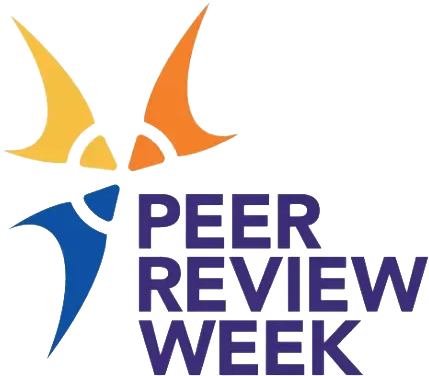Whatever the discipline, it is necessary to evaluate the work of researchers to safeguard the integrity of the scholarly record. This evaluation is best done by ‘peers’, who are suitably qualified in the topic area.
Typically, when a researcher submits a manuscript for publication, it is appraised by an editor and if it passes some basic checks, it is sent to 2 appropriate reviewers who write a report on elements of the work. If these ‘peers’ deem the manuscript acceptable, it is sent to production to be included in a journal issue (or as a book). Often, major or minor amendments are suggested, and the corresponding author is informed of the revisions required.
Peer reviewers are therefore essential to the publication process and undertaking peer review demonstrates a commitment to your discipline. Giving up your time to review the work of colleagues is evidence of ‘citizenship’ and is a great thing to mention in job applications and promotion cases. Platforms such as ORCID now have a section in which you can name the journals for which you have reviewed. If you’d like to know more about becoming a peer reviewer yourself, visit the Web of Science Academy.

In recent times, various factors have fuelled an increase the volume of manuscripts submitted; there was a 47% growth between 2016 and 2022 in the global number of published papers (Hanson, et.al. 2023). This puts a burden on peer reviewers who see no financial reward for their peer review activity, and who are doing research of their own.
The theme of this year’s Peer Review Week is ‘Rethinking Peer Review in the AI Era’. Judicious use of Artificial Intelligence may relieve some of the burden on hard-pressed reviewers, but could it also undermine integrity? What sort of rules should be made on how AI is used in peer review? With stories of researchers hiding instructions within their manuscripts to trick AI peer review tools to give them a good review (Gibney, 2025), it’s vital that AI is used transparently and within suitable guardrails. Sign up to this week’s webinars or watch the recordings on the Peer Review Week website to learn more.
Academia’s interest in open research has also led to an interest in open peer review. Traditionally, the identity of peer reviewers has been hidden from authors. Anecdotally, this led some reviewers to act with impunity and adopt an adversarial rather than ‘critical friend’ approach. Some publishers are moving to different models where elements of the process are transparent:
- Open identities: authors and reviewers are aware of each other’s identity.
- Open reports: review reports are published alongside the relevant article (rather than being kept confidential).
- Open participation: the wider community (and not just invited reviewers) are able to contribute to the review process.
The hope is that this openness creates a more constructive atmosphere in peer review. However, some concerns that researchers earlier in their career will be put off reviewing if their identities are open to more senior colleagues have been voiced; it remains to be seen if this is borne out in practice. How do you feel about open peer review?
References
Gibney, Elizabeth. 2025. Scientists hide messages in papers to game AI peer review. Nature; (643) p887. 24 July 2025. Full text access via UoB.
Hanson, Mark (et al). 2024. The strain on scientific publishing. Quantitative Science Studies; 5 (4) p823–843. https://doi.org/10.1162/qss_a_00327 (open access).
Discover more from UoB PGR Development blog
Subscribe to get the latest posts sent to your email.